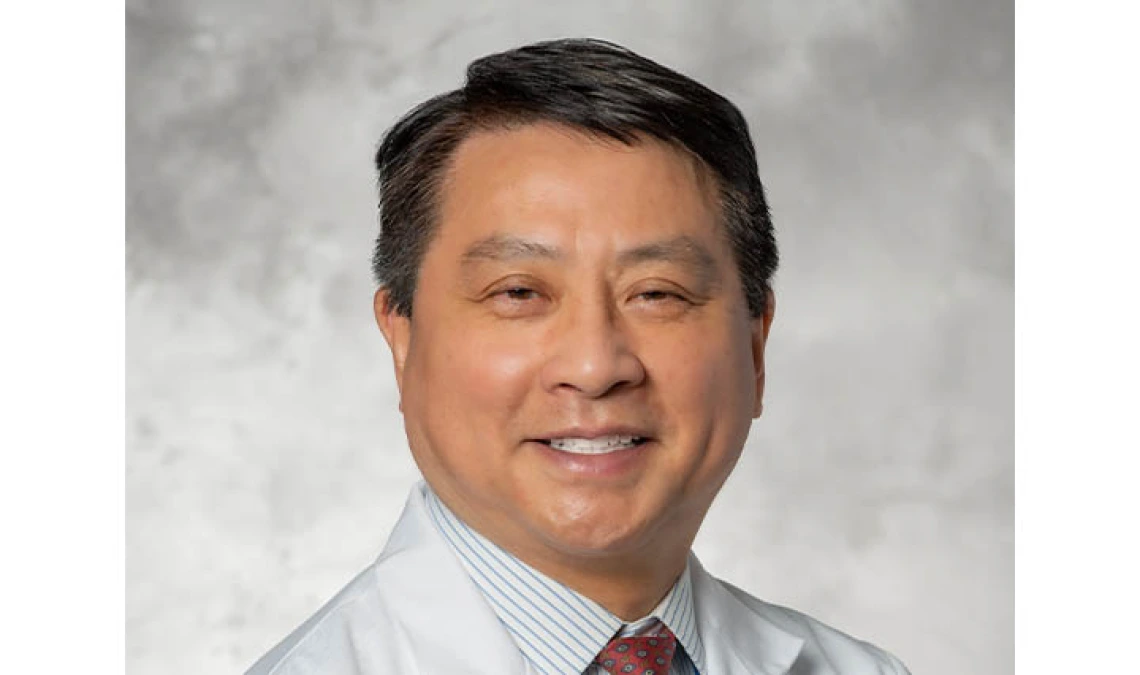Jeffrey Pu To Lead Restructured UArizona Cancer Center Adult Hematopoietic Cell Therapy and Transplantation Program
Working in collaboration with Dr. Emmanuel Katsanis, Dr. Jeffrey J. Pu will oversee clinical and research efforts for the adult hematopoietic cell therapy and transplantation program and will lead the adult bone marrow transplant/Leukemia clinical team.

Jeffrey J. Pu, MD, PhD, associate professor at the University of Arizona College of Medicine – Tucson, has been appointed medical director of the adult Hematopoietic Cell Therapy and Transplantation (HCTT) program at Banner-University Medicine-Tucson and associate director for the HCTT program at the UArizona Cancer Center.
“I want to welcome Dr. Pu to the Cancer Center,” said Joann Sweasy, PhD, the Nancy C. and Craig M. Berge Endowed Chair and Cancer Center director. “Dr. Pu is a clinician-researcher who will help facilitate the translation of novel discoveries in the laboratory to care for our cancer patients. I look forward to working with him, and we are very happy he chose to join us at the Cancer Center."
Jointly led by director, Emmanuel Katsanis, MD, and Dr. Pu as the associate director, the HCTT program conducts research and provides treatments to patients in need of blood or marrow transplants and cell therapies. Cell therapies, including CAR T-cell therapy, a form of immunotherapy that uses specially altered T cells to fight cancer, are becoming more common as treatments for patients with blood-related malignancies.
Dr. Pu, who is also Chief of Leukemia and Bone Marrow Failure Diseases Section, will lead a restructured adult HCTT program that recently added two faculty: Muhammad Husnain, MD, was hired last summer, and Sharad Khurana, MD, joined the team in the fall.
“In a period of six months, we have rebuilt the adult HCTT team,” Dr. Katsanis said. “We are looking forward to Dr. Pu's leadership to continue growing this program through engagement with the community and the quality of care this excellent HCTT team will provide.”
As part of his responsibilities as medical director for adult HCTT, Dr. Pu will collaborate with Dr. Katsanis and other HCTT team members in developing investigator-initiated clinical trials that will lead to safer and more effective stem cell transplant protocols by reducing disease relapse after stem cell transplantation, complications from acute and chronic graft-versus-host disease, and incidence of opportunistic infections. He will also secure extramural funding and develop an independent research program in HCTT or malignant hematology.
“I am looking forward to improving the quality of care and providing state of the art treatment options for patients in the Tucson area and beyond,” Dr. Pu said. “In addition, as a physician-scientist, I am looking forward to collaborating with my colleagues at the Cancer Center to advance our translational research capacity. I feel it is important that we, as the only academic medical institution in the southern Arizona region, are able to provide the most advanced therapeutic options to our patients, and to emphasize, promote and distribute the most updated medical information and knowledge to our patients and our community.”
Dr. Pu, who is certified as an expert of bone marrow failure diseases and a preferred hematologist consultant by the Aplastic Anemia & MDS International Foundation, will also lead the bone marrow transplant/Leukemia clinical research team for the Cancer Center. This team conducts clinical research in adult bone marrow failure disorders, acute leukemia, multiple myeloma and HCTT.
“Dr. Pu is critical to our success,” said Daniel O. Persky, MD, associate director for clinical investigations at the Cancer Center. “His expertise and enthusiasm will help to advance stem cell transplants and cell therapies for adult patients who need them.”
Dr. Pu received his doctorate in developmental molecular cell biology from New York Medical College and his medical degree from Shanghai Jiao Tong University School of Medicine. After his residency at Mount Sinai School of Medicine, Dr. Pu completed a National Institutes of Health-supported experimental hematology fellowship at pioneer Dr. Colvin M. Redman’s laboratory and a clinical transfusion medicine/blood banking fellowship at the LFK Research Institute of New York Blood Center. Later, he completed a hematology/oncology fellowship supported by National Institutes of Health T32 training grant at Sidney Kimmel Comprehensive Cancer Center of Johns Hopkins University.

